Quick navigation:
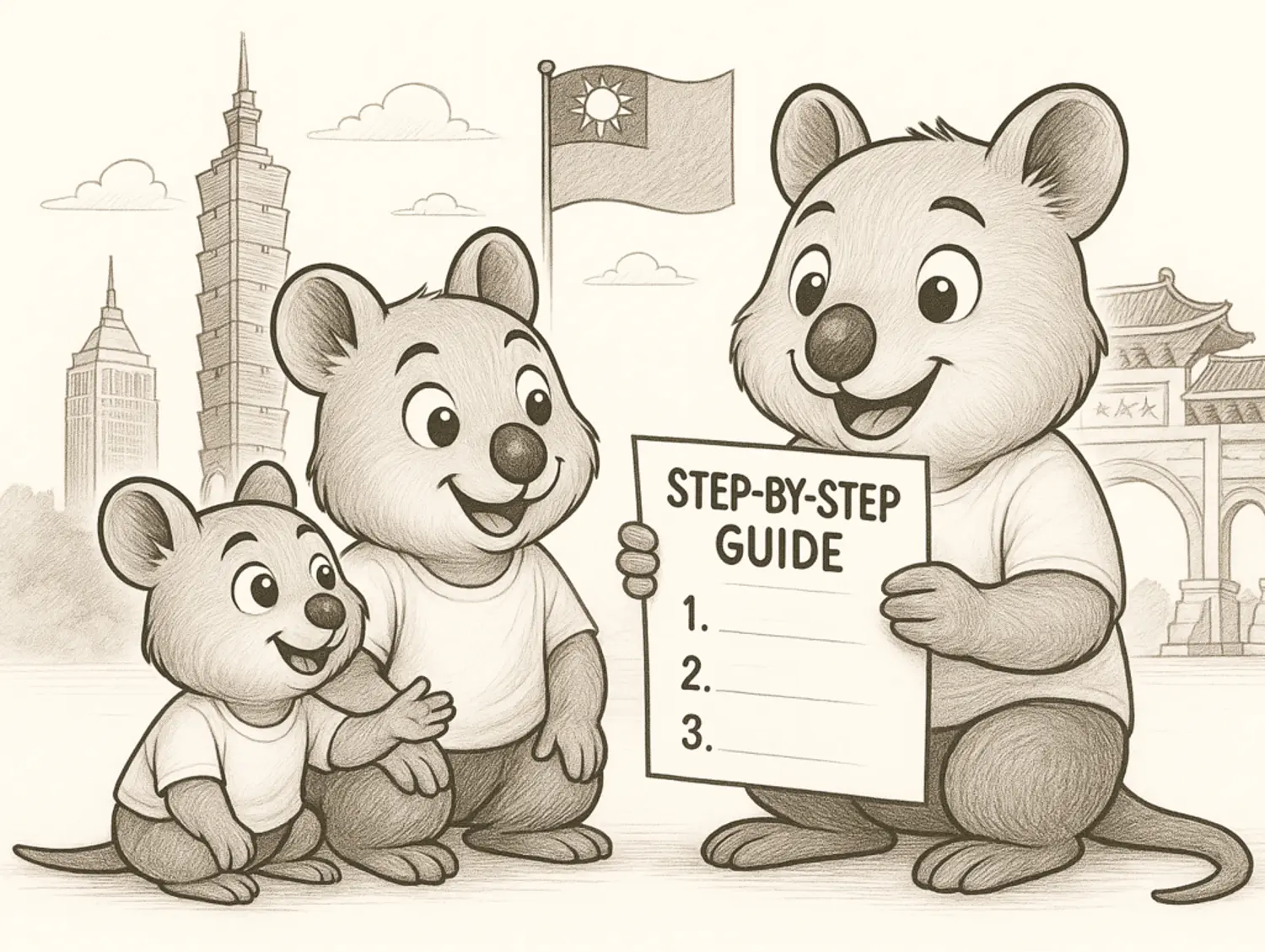
Moving to Taiwan: Step-by-step guide for 2026!
Quick navigation
I'm Florian, a French expatriate living on this island for few years now and if you're thinking about moving to Taiwan? You're not alone. With its friendly people, modern cities, beautiful landscapes, and affordable cost of living, Taiwan is a top choice for expats around the world. Whether you're coming for work, study, or just a new adventure, this guide will walk you through everything you need to know-step by step.
Need help moving your belongings to Taiwan?
We partner with Steven The Mover, one of Taiwan’s most trusted English-friendly moving companies. Whether you're shipping just a few boxes or your whole household, Steven’s team can manage packing, shipping, customs, and delivery.
Get a free moving quote →Before to start, let's talk about culture quickly, because this is the one of the first thing to respect when expatriating to a new country. Taiwanese society values:
- Politeness
- Respect for rules
- Avoiding conflict
- Cleanliness
- Quiet in residential areas
As a foreigner, blending into these cultural norms makes life easier.
📍 1. Research & decide where to live
Taiwan offers a mix of bustling cities, coastal towns, and mountain retreats. It’s essential to find the right place based on your lifestyle, budget, and goals. Here are some popular options:
Taipei
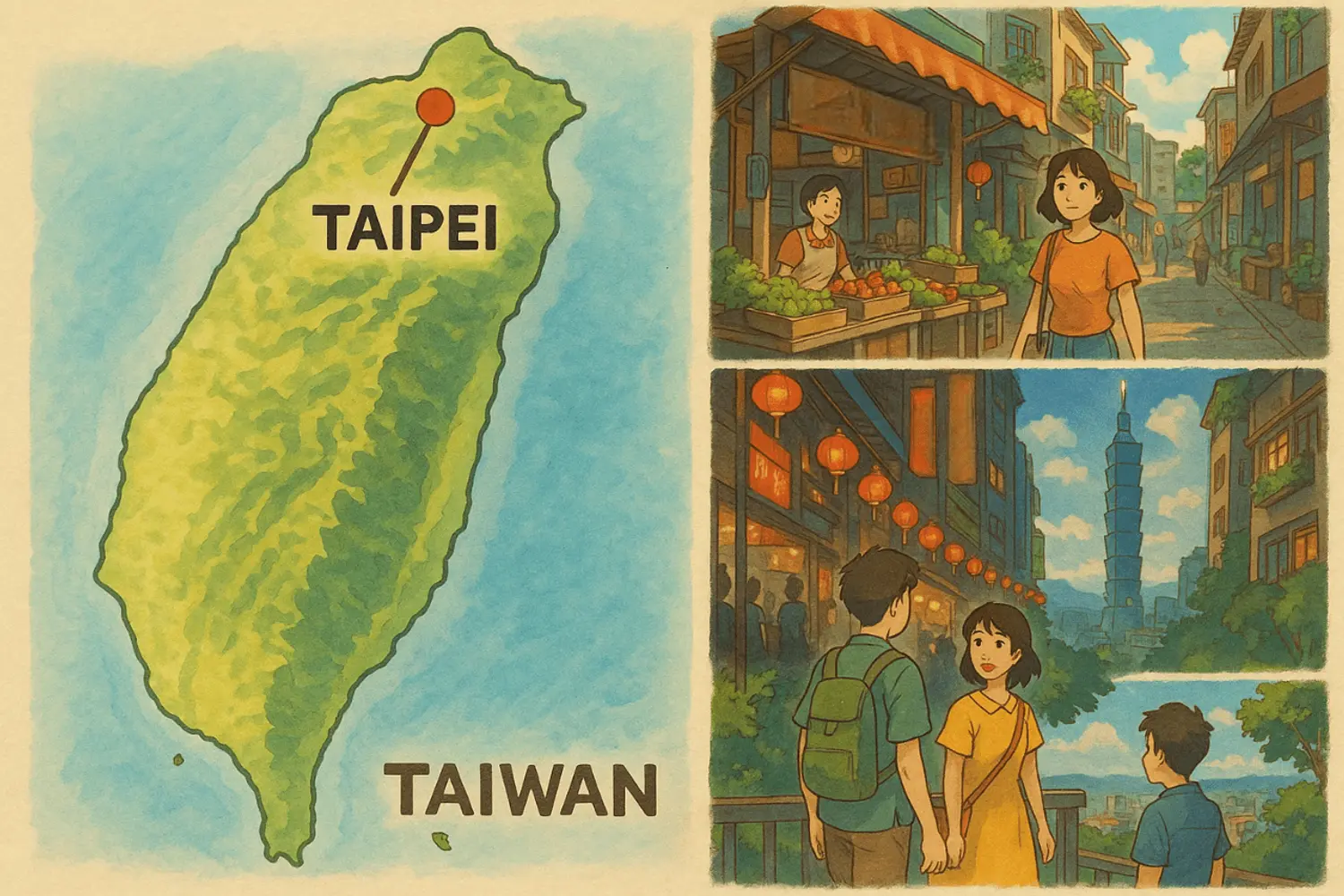
The capital is modern, international, and packed with food, culture, and job opportunities. Ideal for tech workers, English teachers, and students. However, it’s also the most expensive city in Taiwan, especially when it comes to rent.
Most popular districts in Taipei for foreigners
Taipei is the most common first stop for newcomers. Below are the districts where foreigners tend to live, along with the advantages and downsides compared to living in other cities in Taiwan.
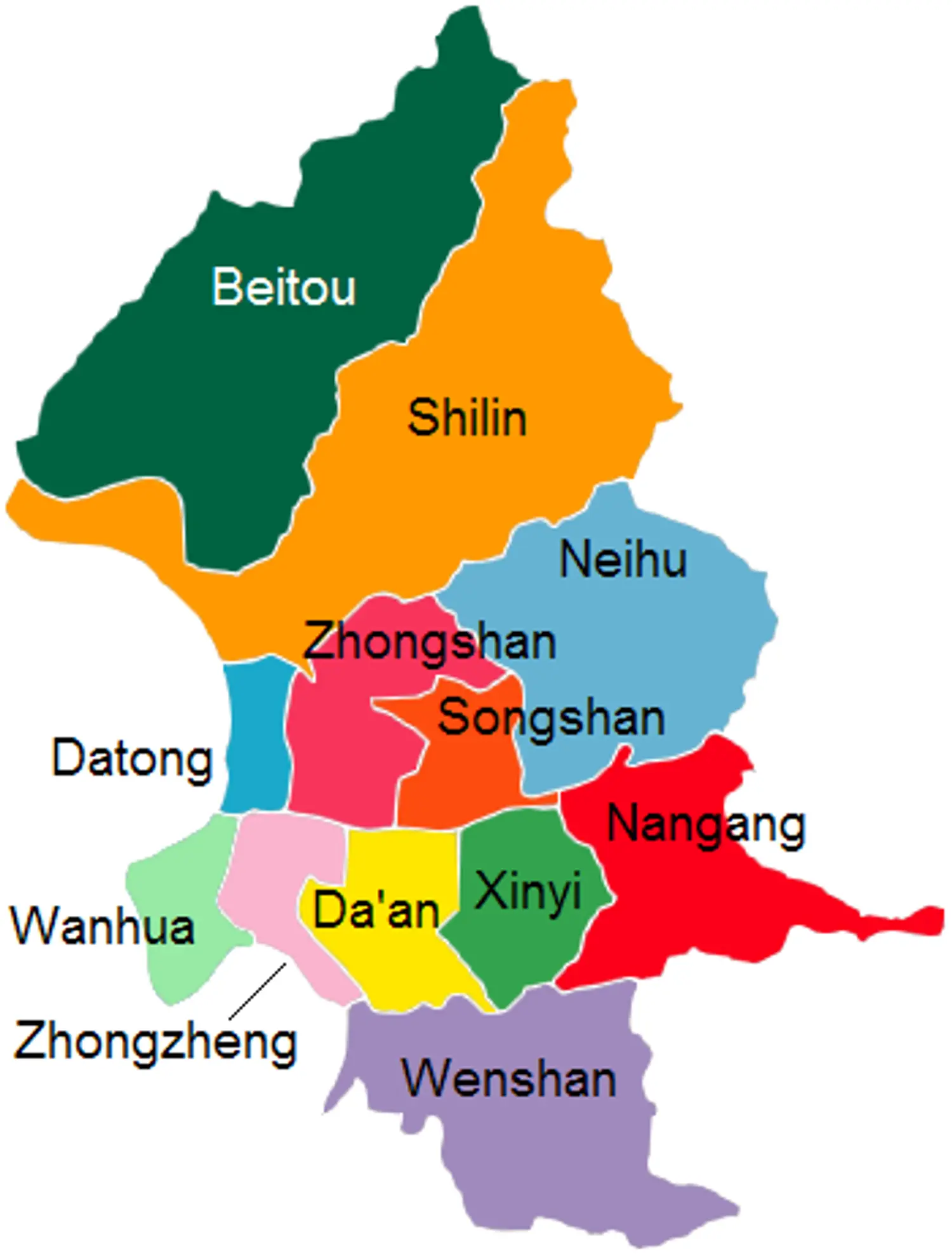
Da’an District
Very Foreigner-FriendlyWhy people love it:
- Central, safe, and highly walkable
- Da’an Park – the “Central Park” of Taipei
- Many cafés, gyms, co-working spaces
- Great metro coverage
Downsides:
- One of the most expensive districts in Taiwan
- Small apartments for the price
- Busy and noisy main roads
Xinyi District
Premium LifestyleWhy people love it:
- Modern “business & lifestyle” center
- Best malls, nightlife, rooftop bars
- High-end apartments with good facilities
- Stunning Taipei 101 views
Downsides:
- Highest rents in the country
- Can feel corporate or crowded
Zhongshan District
Balanced & ConvenientWhy people love it:
- International restaurants and bars
- Convenient metro connections
- Popular with Japanese and Western expats
- Good mix of modern and older apartments
Downsides:
- Some areas are tourist-heavy
- Rents higher than average Taiwanese cities
Songshan District
Comfort & LifestyleWhy people love it:
- Near riverside parks and cycling paths
- Songshan Cultural and Creative Park
- More modern buildings than other districts
Downsides:
- Still relatively expensive
- Traffic near Raohe Night Market
Shilin District
Family-FriendlyWhy people love it:
- Large apartments for reasonable prices
- Close to international schools
- Quiet residential areas
- Good nature access (Yangmingshan)
Downsides:
- Longer commute to city center
- Night market areas can be crowded
Taipei vs. Other Cities in Taiwan
How do these Taipei districts compare with the rest of the country?
✔ What Taipei Does Better
- Most international-friendly environment
- Best public transportation in Taiwan
- Easiest city to live without Mandarin
- More job opportunities for foreigners
- Modern apartments, cafés, gyms, and nightlife
✘ Downsides Compared to Other Cities
- Rent is 30–60% higher than Taichung, Tainan, Kaohsiung
- Smaller apartments for the same price
- More noise and traffic
- Higher cost of living overall
- Weather is more humid and rainy
For lifestyle, Taichung and Tainan offer more space, warmer weather, and lower rent. Taipei is ideal if you want convenience, transport, and an international community.
Here are some metrics about Taipei's weather :
-
Climate: Subtropical and humid
-
Temperature: Winters are cool (12–18°C / 54–64°F), summers hot and muggy (26–38°C / 79–100°F)
-
Rain: One of the rainiest cities in Taiwan, especially from May to October, with frequent typhoons in late summer.
-
Humidity: Very high year-round.
-
Pros: Four seasons, vibrant greenery, cooler winters.
-
Cons: Long rainy season and gloomy skies can be tiring for some.
Where are the best neighborhoods in Taipei?
Taichung
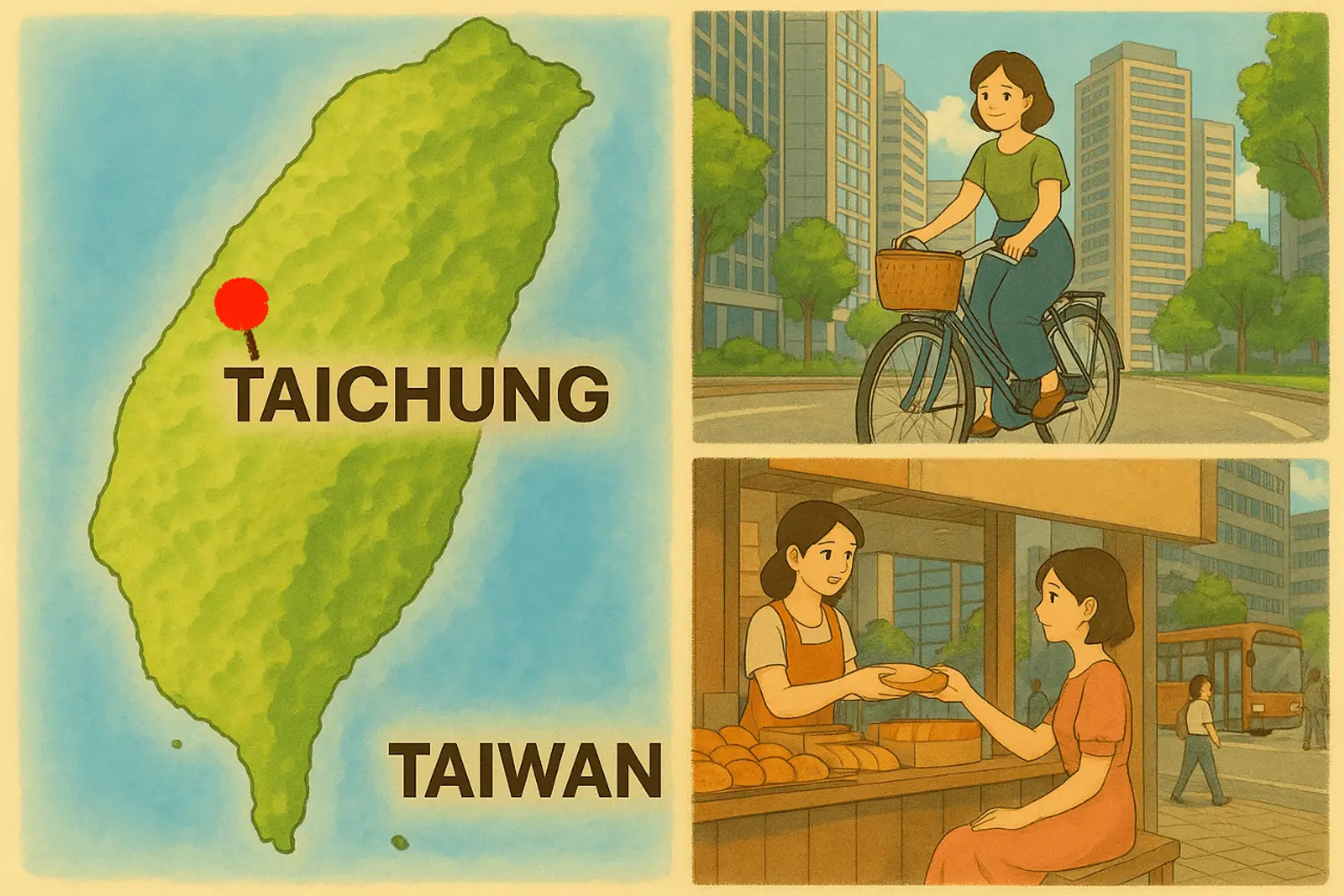
Known for its milder weather, relaxed pace, and great food. It's a great balance between city life and affordability. It also has a growing startup and expat community.
Here are some metrics about Taichung's weather:
-
Climate: More temperate and drier
-
Temperature: Milder all year—rarely too cold or hot (18–32°C / 64–90°F)
-
Rain: Considerably drier than Taipei. Summer rains happen, but they're usually brief.
-
Humidity: Lower than northern cities.
-
Pros: Often called the city with Taiwan’s best weather.
- Cons: Air pollution can occasionally be an issue.
What is the best neighborhood in Taichung?
Tainan
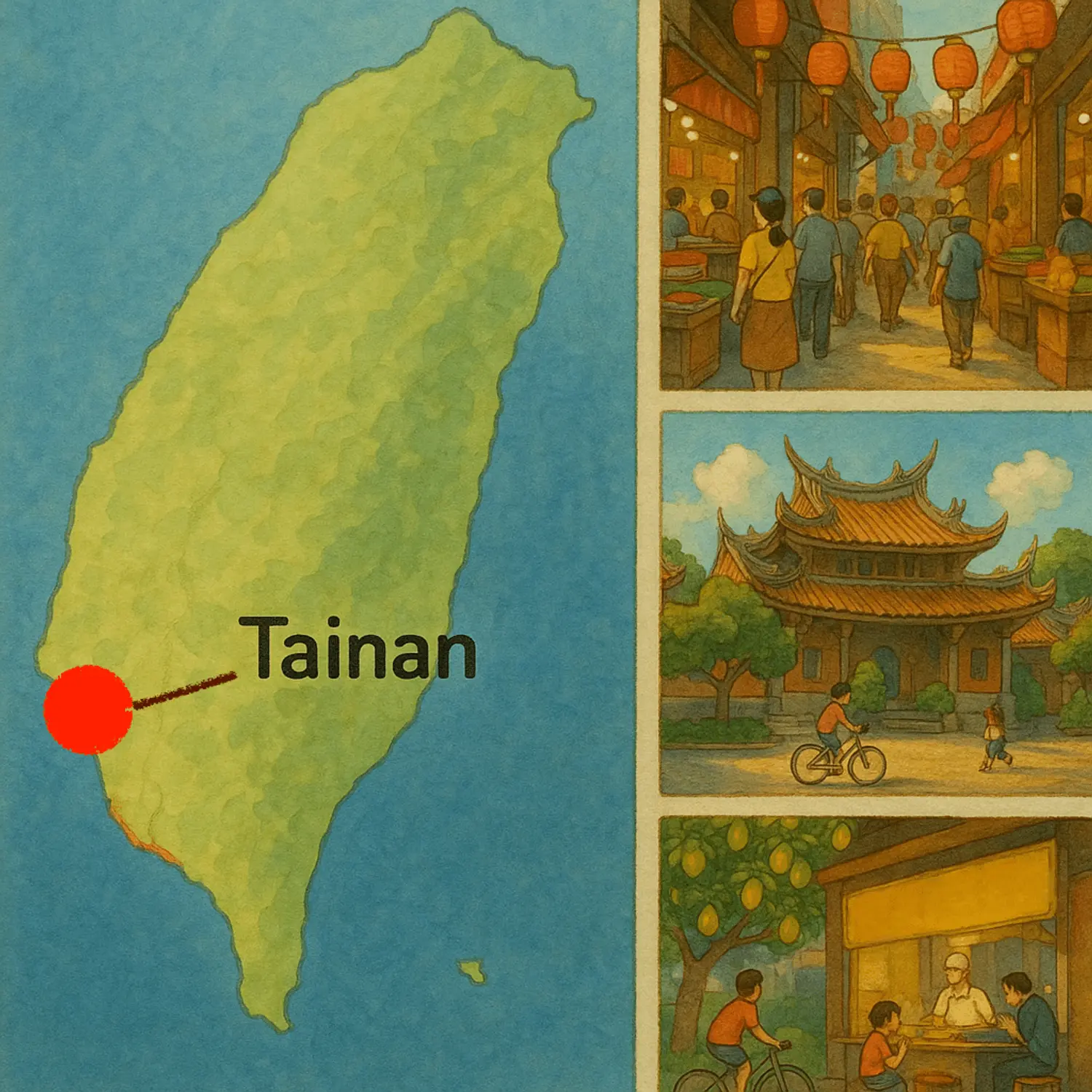
The former capital is rich in history, tradition, and temples. Life here moves slower, and it's perfect for those seeking an authentic Taiwanese experience with cheaper housing.
Here are some metrics about Tainan's weather:
- Climate: Tropical
- Temperature: Warm-to-hot year-round (20–36°C / 68–97°F)
- Rain: Short rainy season during summer (May–August), then long dry winters.
- Humidity: Noticeably humid, especially in summer.
- Pros: Lots of sunny days and pleasant dry winters.
- Cons: Can feel very hot for those not used to tropical weather.
What is the best neighborhood in Tainan?
Kaohsiung
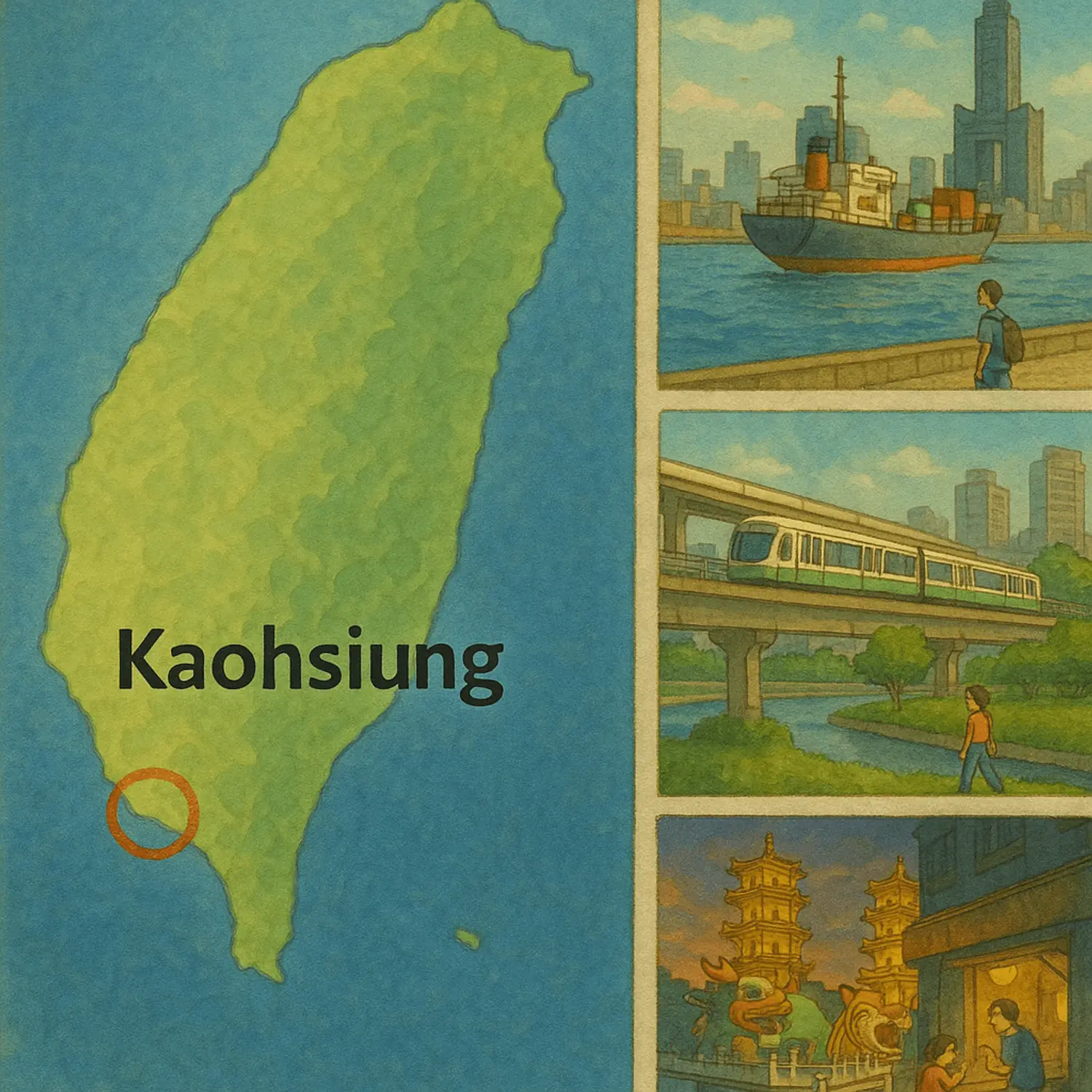
A port city in the south with a warm climate, spacious urban planning, and beaches nearby. It's increasingly popular among digital nomads.
Here are some metrics about Kaohsiung's weather:
- Climate: Tropical and sunniest major city
- Temperature: Similar to Tainan but can feel slightly hotter due to urban heat (22–38°C / 71–100°F)
- Rain: Has a rainy season like Tainan but still gets plenty of sun.
- Humidity: High, but the sea breeze helps.
- Pros: Great weather for beach lovers and outdoor activities.
- Cons: Very hot in July and August; air conditioning is essential.
What is the best neighborhood in Kaohsiung?
Tip: Rent before you buy. Try a short-term lease or Airbnb to explore different neighborhoods. Consider transportation options, distance to amenities, and expat-friendly areas.
Those are the 4 main cities of the island, but you have many other places in Taiwan, some located more in the countryside like Nantou district, Hualien, Taitung, etc.
🛂 2. Choose the right visa
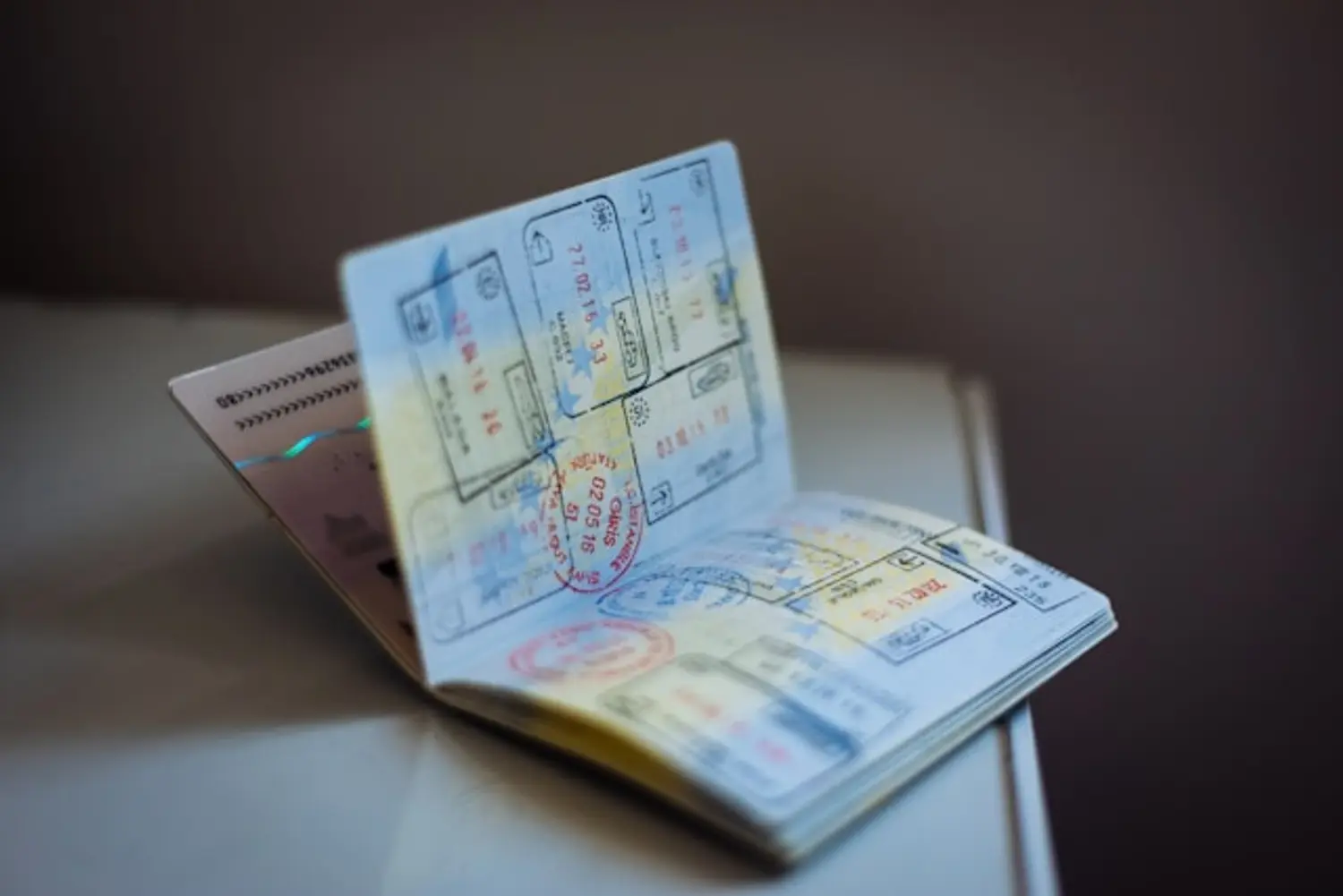
Getting the correct visa is your first legal step to living in Taiwan. The type you apply for depends on your intent:
- Work Visa: Issued after securing a job. Your employer must sponsor your application, and it typically includes an ARC (resident card).
- Entrepreneur Visa: Designed for those planning to start a business in Taiwan. You must meet specific investment and innovation criteria.
- Student Visa: For those enrolled in Taiwanese educational institutions. You’ll need proof of admission and financial support.
- Visitor Visa: If you're not sure about staying long-term, start with this and explore your options. Some visas are extendable.
- Taiwan Gold Card: A 4-in-1 work permit, residence visa, alien residence certificate, and re-entry permit. It’s perfect for professionals in high-demand fields like tech, finance, and academia.
Check eligibility and requirements on the Taiwan Gold Card official site.
🏧 3. Plan your finances
Before you move, map out your financial situation. Taiwan is affordable, but relocating costs add up.
💡 Want an accurate moving cost for Taiwan?
Relocation prices vary depending on the size of your shipment and destination. To avoid surprises, you can request a free, no-obligation quote from our trusted partner Steven The Mover.
Get your moving quote →-
Monthly costs: Rent varies greatly by city. Taipei may cost NT$20,000+ for a one-bedroom apartment, while in Tainan or Kaohsiung it could be half that. Food, transit, and mobile data are cheap.
- Emergency fund: Set aside at least 3-6 months of expenses for unexpected costs.
- Currency exchange: Avoid airport exchanges. Instead, use bank ATMs or digital platforms. I usually withdraw with Cathay United Bank ATM that are often in FamilyMart or PXMart, because they don't tax me on the withdrawal from my european debit card. The ATM's in 7/11 shops charge me NT$100 per withdrawal usually.
Although mobile payments are growing, Taiwan still relies heavily on:
- Cash
- Bank transfers
- ATM withdrawals
Not all shops accept credit cards.
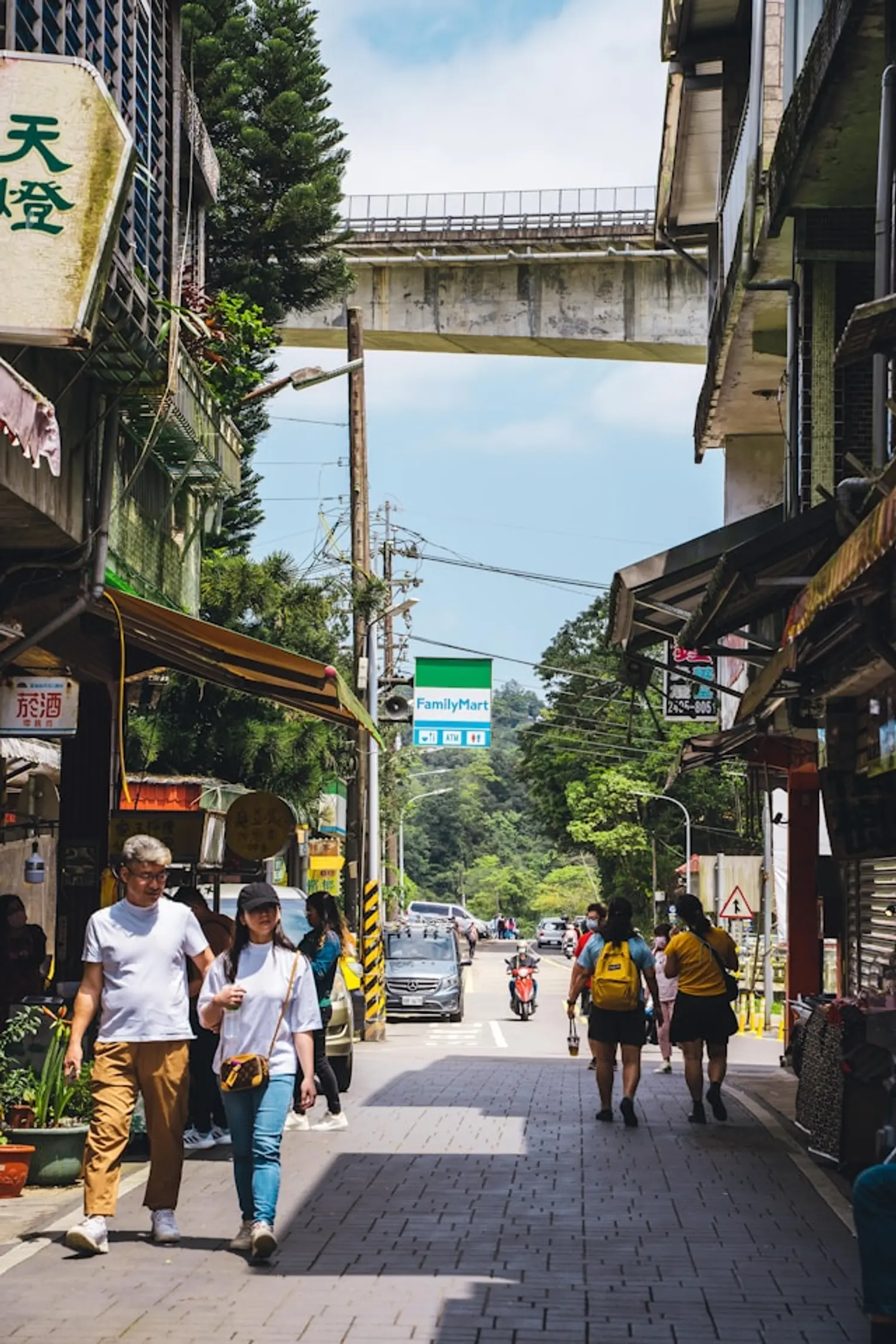
Salaries are lower than western standards
Even in tech or international roles, salaries might be lower than what expatriates are used to.
However, the cost of living is also significantly lower outside Taipei.
Expect:
- Higher rent in Taipei
- Much cheaper rent in Tainan, Kaohsiung, Taichung
- Reasonable grocery costs
- Very affordable street food
Useful financial tools for expats:
- International money transfers: Services like Wise or Revolut offer better rates than banks. When I have to do an international transfer regularly, it can save me some good money.
- Multi-currency accounts: These let you hold multiple currencies, including TWD.
- Online banks: My favorite for traveling is N26 (Europe-based), their app help you manage your finances before and after moving. I personally have N26 Go plan since 2017, between the travel insurance included, no fees on withdrawal and payments outside Europe, their app is really great to use, I can't complain so far.
Pro Tip: Taiwan is largely cash-friendly, but digital payments (LINE Pay, Apple Pay) are catching on. I recommend you to have Line app on your phone as it is the equivalent of Whatsapp for Taiwaneses, and you can pay in many shops with it.
☂️ 4. Get health insurance
Taiwan's National Health Insurance (NHI) is affordable and high-quality but only available after you have a valid visa and ARC (residence card).
Foreigners can apply for National Health Insurance under the following circumstances:
-
Employed foreigners (with a work visa): Eligible from the date of employment.
-
Unemployed foreigners: Must hold valid residency documentation and have resided in Taiwan for a continuous or cumulative period of six months. If the person has not left Taiwan, this means a full six months in Taiwan. One trip abroad is allowed, provided it does not exceed 30 days, and the days spent outside Taiwan are excluded from the six-month calculation.
Temporary coverage before NHI:
For foreigners living in Taiwan temporarily or waiting to join the National Health Insurance system, international coverage from SafetyWing offers an affordable health insurance solution that works worldwide, including Taiwan.
This plan ensure you’re covered immediately after arrival.
Once eligible, enroll in Taiwan's NHI. Premiums are around NT$800/month and cover doctor visits, dental care, prescriptions, and more.
📱 5. Stay connected
You’ll want to get online immediately upon landing.
Before arrival:
- eSIMs: Airalo offers Taiwan eSIM plans you can activate instantly. It is one of the most well-known global eSIM providers, with a wide range of plans and solid coverage.
Taiwan Housing users enjoy a 10% discount with Airalo, auto-applied at checkout (valid until 31/12/2025). Just a small way we hope to make your arrival smoother. - International SIM cards: Keep your original number while adding a Taiwanese line.
After arrival:
- Sign up for local mobile providers like Chunghwa, FarEasTone, or Taiwan Mobile. I personnaly use FarEasTone for quite some time and have a great coverage, even in remote areas.
- Use apps like LINE (for messaging), Foodpanda (for food delivery), and Uber Eats.
Get a portable Wi-Fi or prepaid SIM for the first few days if you're unsure about long-term plans.
Oh, and by the way, some people often wonder if Taiwan has website restrictions like mainland China: No, Taiwan doesn't have restrictions and is consistently ranked as one of the freest internet in Asia.
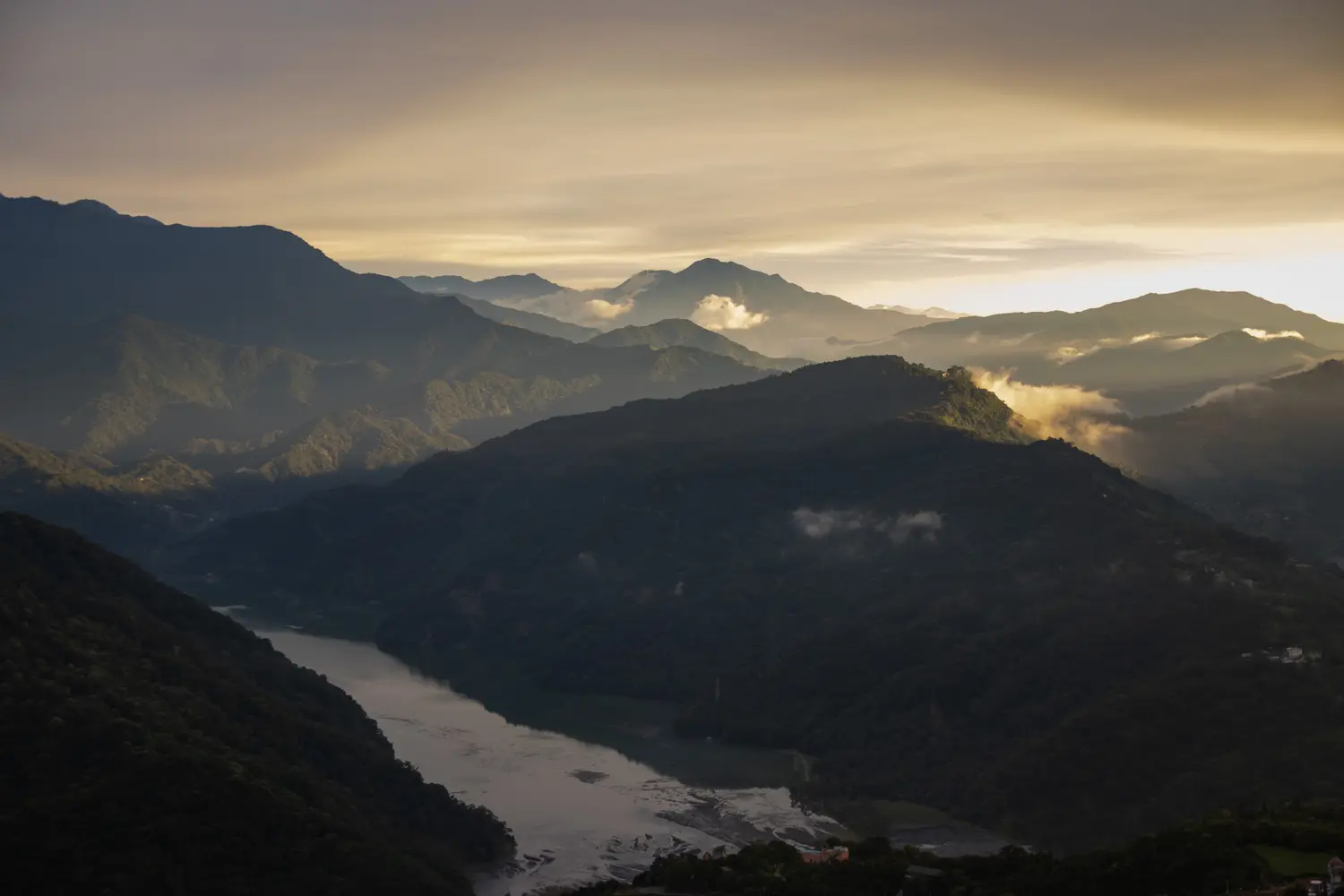
💻 6. Set up a VPN
Some websites and apps from your home country may be geo-blocked or restricted. As a french man that love sport, I can't watch tennis or football games on FranceTV channel online without a VPN ! To be honest, for your daily life online, I think to have a VPN is not often useful, but sometimes, like my previous example, it is!
Trusted VPNs:
- NordVPN: Great speed and security.
- Surfshark: Budget-friendly, unlimited devices.
- ExpressVPN: Easy to use with strong encryption.
A VPN is helpful for:
- Online banking
- Streaming content
- Managing digital businesses
- Data privacy on public Wi-Fi
Install and test your VPN before you leave your home country.
🏡 7. Find housing
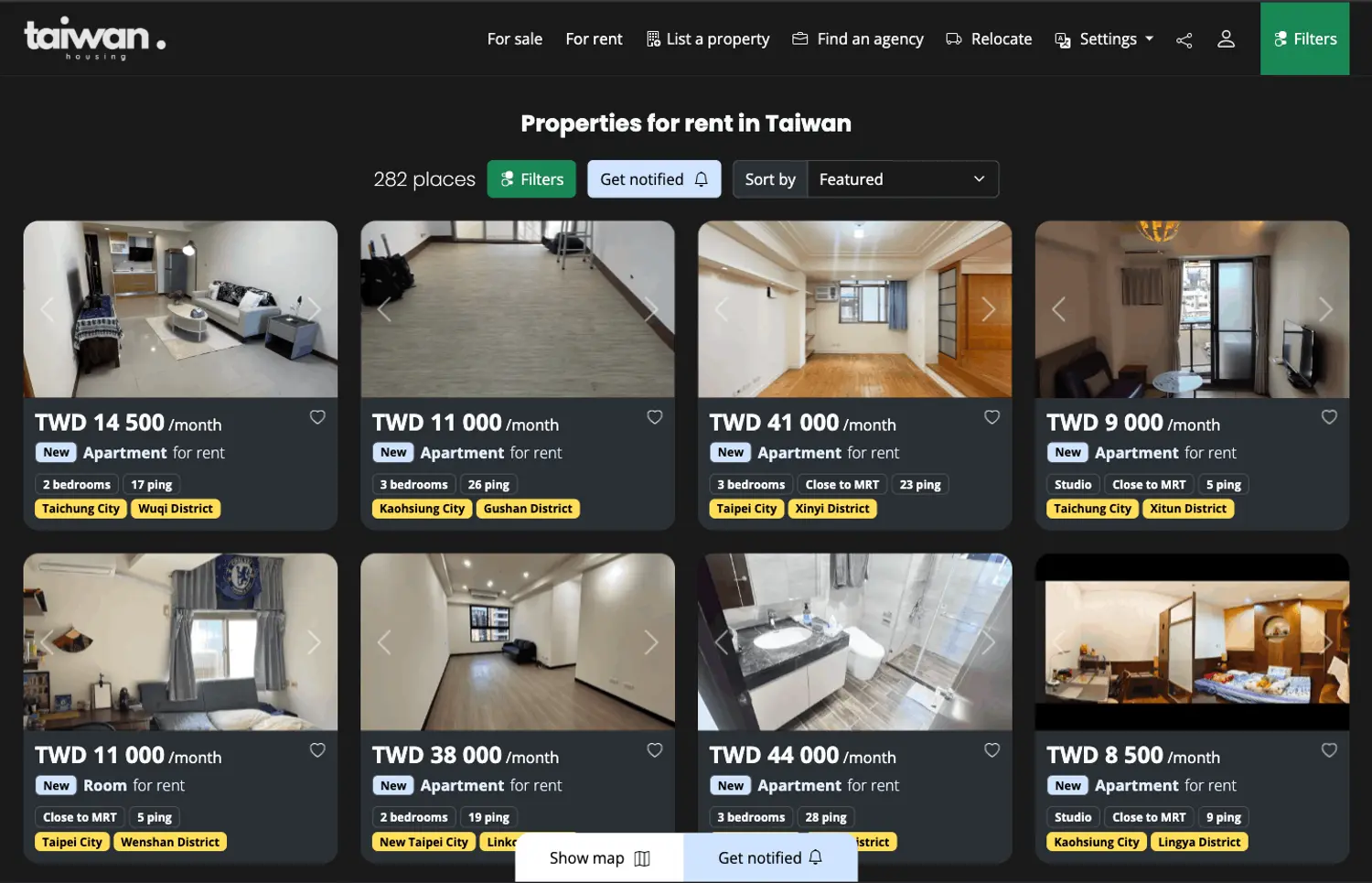
After landing, you’ll want to explore neighborhoods in person.
🪜 Steps we recommend:
- Book a short-term stay (hotel, Airbnb, hostel).
- Visit areas at different times of day.
- For long term rent, use sites like Taiwan Housing for English-friendly listings.
- Connect with expat Facebook groups for tips. For example, for french people, we have groups like "Frenchies in Taiwan", "Frenchies in Taipei", ect.
Be cautious of:
- Very short leases (less than 6 months)
- Lack of contracts (always get one)
- Unfurnished vs. furnished units
Pro Tip: Rent prices are often negotiable. Agents usually take half a month's rent as commission.
9 tips to avoid scams in Taiwan while searching for a property
ℹ️ Infos you should know:
Finding an apartment is fast, sometimes too fast
In Taiwan:
- Apartments are rented immediately
- Viewings often happen with only a few hours’ notice
- Good places disappear within a day
You must be ready to make decisions quickly and have cash for the two-month deposit + first month rent.
🪑 Furnished, but not too furnished
Your new apartment will likely come with the basics:
- A bed, a wardrobe, and a wet bathroom (yep, sometimes the shower head is directly over the toilet, multitasking!).
- An A/C unit (praise be), and a water heater (a small electric box that does its best).
But don’t get your hopes up for:
- A kitchen
- A microwave, oven, or dishwasher
- Heating of any kind
- Or a dryer (this ain’t Scandinavia)
Taiwanese people are minimalist about appliances. You’ll find gas burners, rice cookers, and air fryers everywhere—but if you love baking sourdough, bring your own oven.
🏢 A Concrete jungle
Houses in Taiwan = Apartments in tall buildings. Unless you’re moving to the countryside with a hefty budget, don’t expect:
- A yard
- Carpet
- Wooden floors
- Or much insulation
You might get a security guard downstairs though, which is cool until they scold you for receiving too many Shopee packages.
🌇 Balconies: Your everything room
Balconies are where:
- Your washing machine lives
- Your clothes dry (line-drying is an art form here)
- And maybe, if you’re lucky, you host a tiny BBQ party
Put your washer in the bathroom? It’ll die in six months. Put a dryer indoors? Your home turns into a steam room. So embrace the balcony life.
🌬️ The Humidity strikes back
Taiwan’s climate is a mold-growing paradise. Your shoes, books, and even your favorite hoodie may start growing ecosystems of their own.
Buy a dehumidifier, or keep your A/C running on dry mode. Check your furniture occasionally for fuzz. No joke.
💦 Tap water: Just don’t
Officially treated? Yes.
Actually drinkable from the tap? Usually... no.
Boil it. Filter it. Or stock up on big mineral water jugs. Taipei is “cleaner,” but even locals don’t trust old water tanks.
🚿 Water pressure roulette
If you're living on a high floor, get ready for a gentle mist instead of a power shower.
Low floors = better pressure but more plumbing issues.
Sudden drop in water flow? Check for tiny pebbles in your showerhead. It’s weirdly common.
🚮 Trash time = Classical music
In Taiwan, you chase the garbage truck. Literally.
When you hear Beethoven’s “Für Elise” echoing through your alley at night, it’s trash o’clock. In Taipei, you’ll need special colored garbage bags. In other places, it’s more freestyle.
🧼 Bugs & Geckos
Yes, you’ll meet cockroaches, especially at night near street drainage system. If you keep your property clean, you should be fine, if not, be ready to have some roommates.
Yes, mosquitoes will haunt your dreams if you don't have a bug net at your windows.
Yes, geckos will show up. No, don’t kill them, they’re bug assassins and sort of adorable.
🔥 Heating? We don't do that here
There’s no central heating in Taiwan. It doesn’t snow, but it can get miserably cold and damp. North Taiwan winters are especially grim.
Solution:
- Buy a portable heater, or
- Get an A/C with a heat pump
- Layer up like you’re going on a ski trip
🏚️ Earthquakes are a thing
Buildings made after 2000? Generally solid.
Anything older? Might wobble more than you'd like.
Always check construction dates—and avoid rooftop add-ons unless you enjoy thrill rides.
Relocation
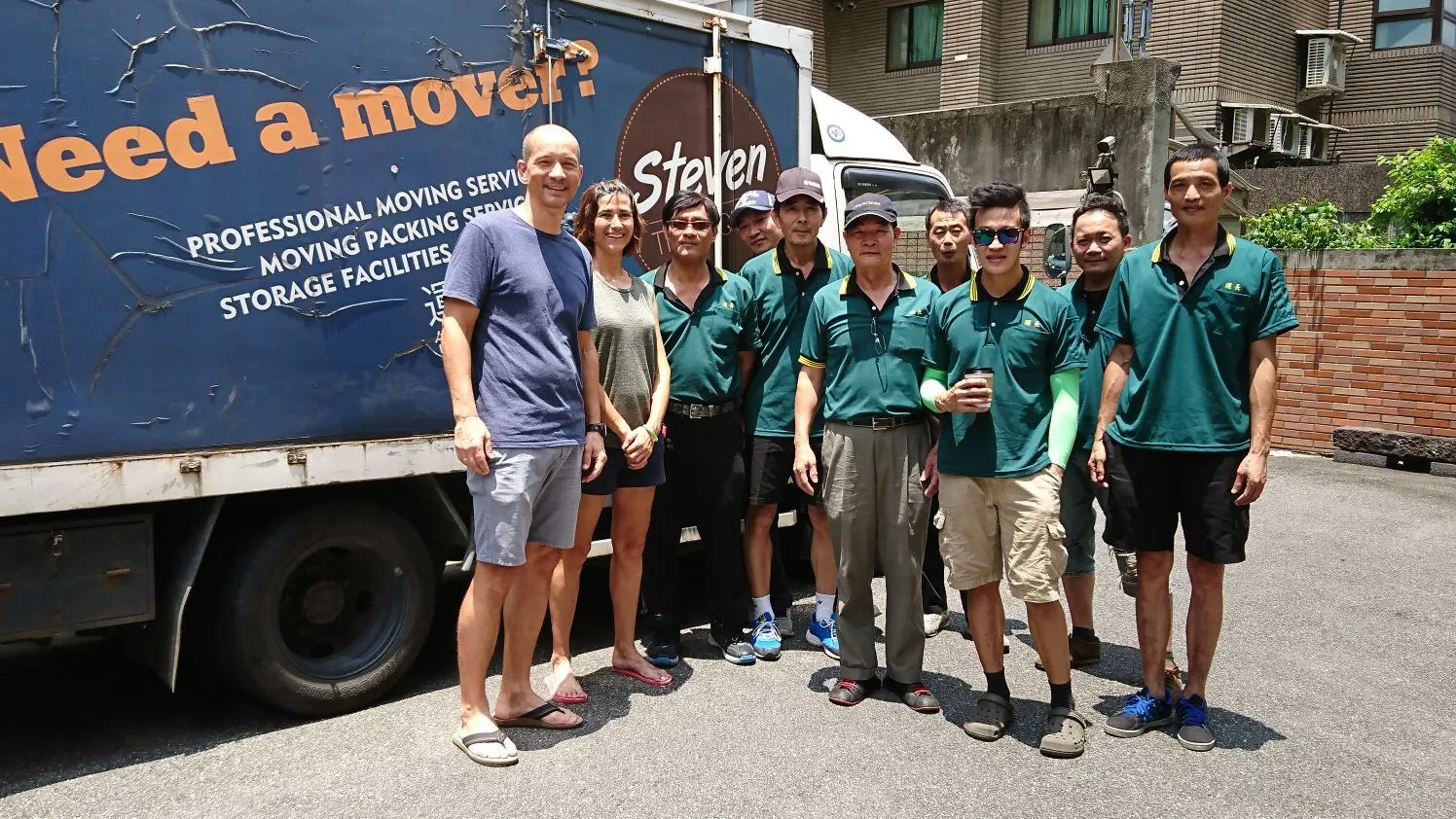
Once you’ve chosen where to live, the next step is getting your belongings to your new home. If you're moving from overseas or even between cities like Taipei and Taichung: our recommended English-friendly relocation service is Steven The Mover. His team can help with packing, shipping, storage, and door-to-door delivery.
🪪 8. Register & get your ARC
Your ARC (Alien Resident Certificate) is essential for life in Taiwan. It lets you open a bank account, get a phone number, and access NHI.
How to get it:
- Visit the National Immigration Agency with your passport, visa, local address, and other required documents.
- Submit your application. Processing time: ~10 business days.
- Once approved, you receive your ARC card.
After receiving your ARC, register for health insurance and update your address with local officials.
🧾 9. Understand taxes & legal obligations
Living in Taiwan long-term means understanding tax responsibilities.
Tax Residency:
- You’re considered a tax resident if you spend more than 183 days in Taiwan in a calendar year. (except some specific cases, depending of your country)
- You must file income tax annually (usually in May).
- Taxes are progressive and not overly complex.
💉 10. Health preparations & vaccinations
Before moving to Taiwan, it’s wise to check the latest health guidelines and make sure your routine vaccinations are up to date. Taiwan does not require any specific vaccinations for entry, but some recommended vaccines for long-term travelers or expats include:
- Hepatitis A & B: Spread through contaminated food, water, or contact with infected individuals.
- Tetanus/Diphtheria/Pertussis (Tdap): Especially important if it has been more than 10 years since your last booster.
- Typhoid: Recommended for those staying long-term or traveling to more rural areas.
Note: No vaccines are currently required for entry into Taiwan, but travelers are advised to consult with their healthcare provider.
Make sure to bring any personal medications you use, along with a copy of your prescriptions. Taiwan’s pharmacies are well-stocked, but bringing a basic supply can help ease the transition.
Also, consider bringing a translated medical history (in English and/or Chinese) if you have chronic conditions or allergies. Once you get your ARC and enroll in Taiwan’s National Health Insurance (NHI), you’ll be able to access a wide network of affordable and high-quality healthcare providers.
🚌 11. Transportation in Taiwan

Taiwan’s transportation system is clean, safe, and efficient. From world-class high-speed rail to extensive local bus networks and cheap scooter rentals, it’s easy to get around without owning a car.
Scooters are everywhere.
You don’t need one to live in Taiwan, but:
- Many locals rely on them
- Renting or buying a scooter requires a license
- Roads can be chaotic for beginners
Public transport is great in Taipei, decent in Taichung and Kaohsiung, and limited elsewhere.
- High-Speed Rail (HSR) connects major cities like Taipei, Taichung, and Kaohsiung in under 2 hours.
- Taiwan Railways (TRA) provides reliable and scenic routes to smaller towns and coastal areas.
- Metro/Subway systems: Taipei and Kaohsiung have modern MRT networks that are bilingual and punctual.
- Scooters & biking: Rent or buy a scooter for local travel. In cities like Taipei, you can use YouBike rental stations via app.
- Buses: Both intercity and local buses are extensive and cheap. Use Google Maps for live schedules.
Bonus Tip: Use an EasyCard to pay for trains, MRT, buses, and even at convenience stores. It's really useful, most of taiwanese have one.
🎓 12. Schools & education
🚌 Getting your kids to school in Taiwan: No yellow school bus here
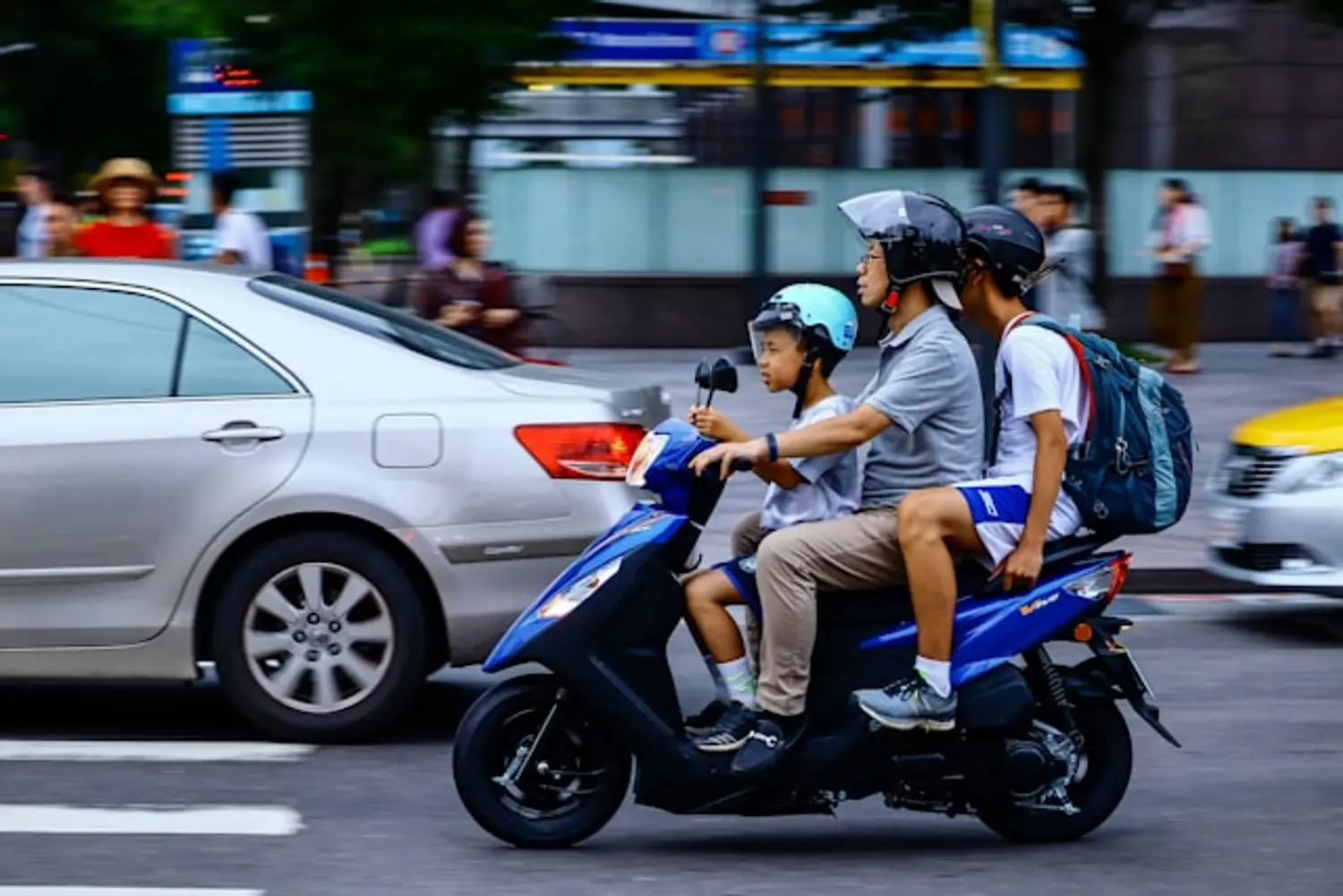
If you’re picturing the classic big yellow school bus from American movies, forget it. Most public schools in Taiwan do NOT offer school transportation (though some kindergartens or private schools may provide shuttle services). That means your kid will need to:
- Walk
- Ride a bike
- Or take public transport
And if none of those options are available? Congratulations, you just became the official family chauffeur. Twice a day. Every day.
The good news:
- Many high-rise apartment complexes are within walking distance of elementary schools and nice little parks (perfect for after-school playtime).
- If you’ve got older kids, proximity to public transportation (bus, MRT, or train) is a lifesaver. It gives them independence—and saves you from countless pick-up runs.
Bottom line: when house-hunting in Taiwan, don’t just look at the apartment, look at the school map and bus stops too. Future-you will thank you.
For expat families and international students, Taiwan offers solid educational options:
International schools in Taiwan:
- Located mostly in Taipei and Taichung.
- Offer American, British, IB, or Japanese curricula.
- Some popular ones include Taipei American School, Morrison Academy, and Taipei European School.
Local schools in Taiwan:
- Public schools are rigorous, especially in academics and discipline.
- Some accept foreign students, especially with Chinese language proficiency.
Universities in Taiwan:
- Taiwan has top-ranked institutions like NTU (National Taiwan University).
- Many programs now offer English-taught degrees.
- Taiwan is becoming increasingly popular for affordable and quality higher education.
Tip: School application deadlines are early! Plan ahead and ask about enrollment requirements, especially for expat children.
Final words about moving to Taiwan
Moving to Taiwan can be smooth and even fun when you're prepared. With the right tools—insurance, banking, SIMs, VPNs, and expert services—you’ll feel at home quickly. Taiwan is a friendly, safe, and rewarding place to live.
If you’re ready to make the move, bookmark this guide and take it one step at a time.
Welcome to Taiwan!
Get a Free Moving Quote for Taiwan →
Affiliate Disclaimer: Some links may earn us a commission at no extra cost to you. We only recommend services we trust or use for expats moving to Taiwan.